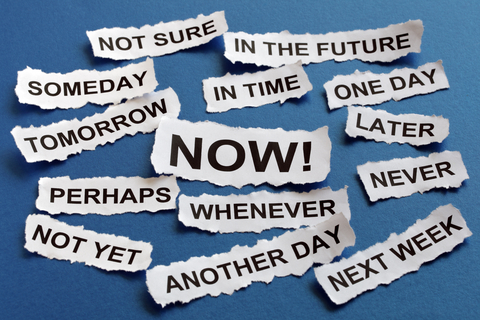You are forced to wait for an answer you want to know now! There is nothing you can do to speed up the process. All you can do is wait and see what happens. It’s easy to start worrying.
You wait for a potential prospect or employer to get back to you. You wait when dating to see if he or she wants to go out again. You wait to see if you got accepted, selected or invited. Unfortunately there is a lot of waiting in life!
How to Make Waiting Easier…
1. Stay busy: Engage in activities such as hobbies, work, exercise or socializing. Distraction can reduce the focus on waiting.
2. Relaxation Techniques: Practices such as mindfulness, meditation, deep breathing exercise or yoga can reduce anxiety and increase patience.
3. Positive Thinking: A crisis or difficult situation is an opportunity to grow!
4. Set Realistic Expectations: Adjust your expectations about the waiting time. Understanding that some processes naturally take time can help manage frustration.
5. Plan Ahead: Use the waiting period to plan for different outcomes. Preparing for both positive and negative responses can help you feel more in control and less stressed.
6. Connect with Others: Talk to friends, family, a support group, a professional or all of the above!
7. Limit Checking: Avoid constantly checking for updates or responses. Set specific times to check so you’re not preoccupied with waiting.
Waiting is a given, but worrying isn’t. Why do people worry? What are they afraid of? It’s almost always a negative outcome. You get way ahead of yourself and imagine the worst. In reality you can’t know the future as it is unknowable, unless you have a crystal ball!
Uncertainty is challenging and especially when there is no end date. In school you know when the grades will be posted, with perspective business or personal opportunities they either happen or they don’t. With health tests the results come quickly.
Chronic conditions are different. These are conditions that may be treatable but not curable. It’s likely you’ll feel sorry for yourself, frustrated and even angry. You are human! From my perspective, this is as an opportunity for personal growth.
Recently I was diagnosed with lumbar spinal stenosis. When I walk more than a half mile I experience nerve pain in my left leg making it difficult to continue walking. It’s been particularly stressful since long walks and hiking are my ways to be in nature, exercise and socialize.
I’m seeing a physical therapist, chiropractor and an orthopedic spine specialist. I’m meeting more often with my counselor and life coach! Some days I feel down and others I’m fine. Thankfully I have a good attitude, positive spirit and am using my emotions management tools!
- Acknowledge and Accept the reality of your situation and your emotional response.
- Write in your “Feelings” Journal. Record good and bad feelings including the circumstances.
- Focus on Creative Solutions or Alternatives (recumbent bike, E-bike, fitness classes)
- Push Past Fear with Positive Self Talk or a positive phrase like “I can handle this”
- Reach Out For Support, especially on a “bad” day.
- Help and Support Others to take the focus off of you!
- Take Breathing Breaks (slowly inhale and exhale) to calm and center yourself.
There is no escaping waiting. It requires patience and resilience. Becoming more patient and resilient will help you have a happier and more enjoyable life. It’s well worth pursuing.
Cheers to personal growth!
MarGO!
Margo Geller CSW, CRC
Professional Counselor
Life Coach (Personal and Business)
404-218-4559
MargoGeller@Gmail.com
MargoGeller.com





